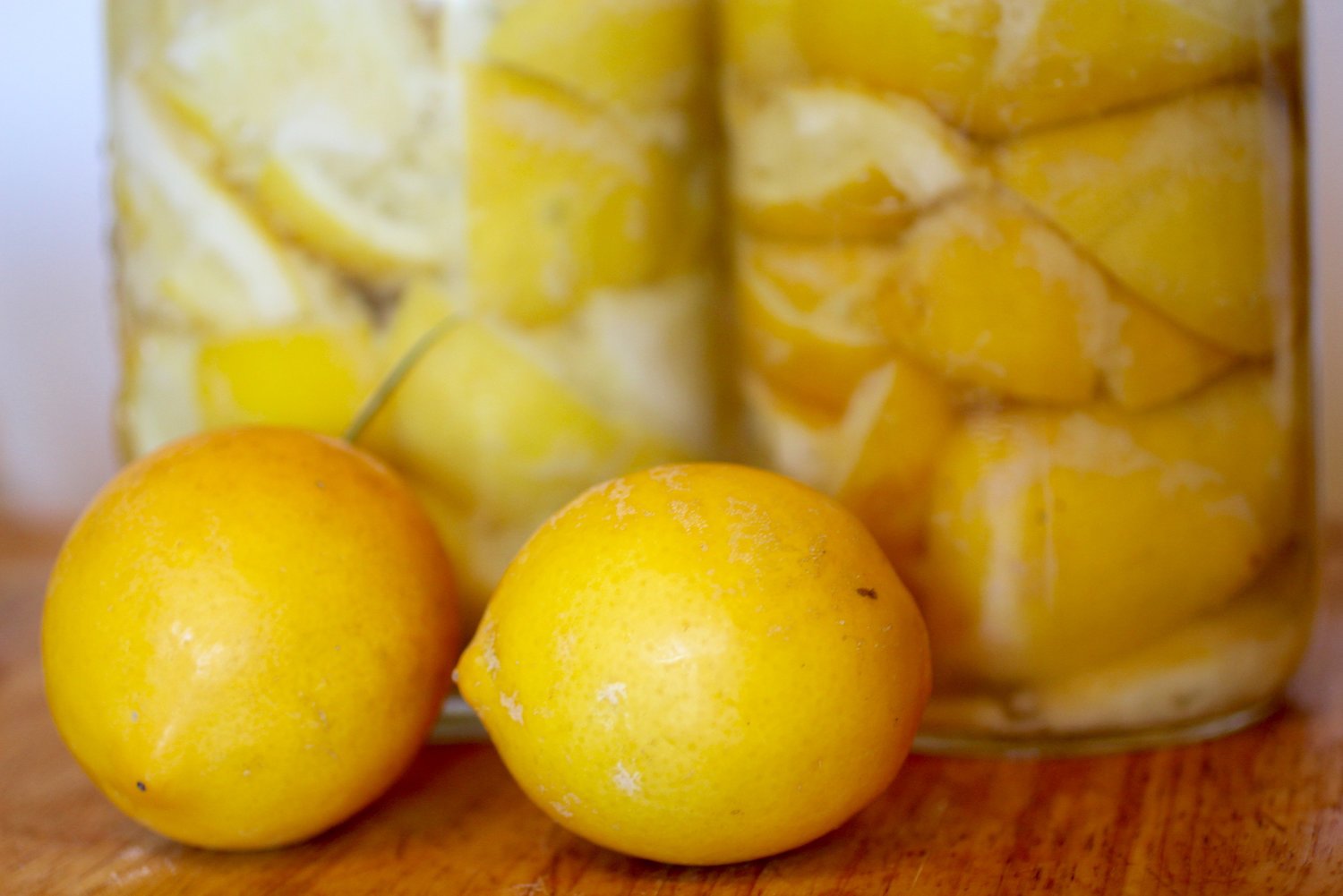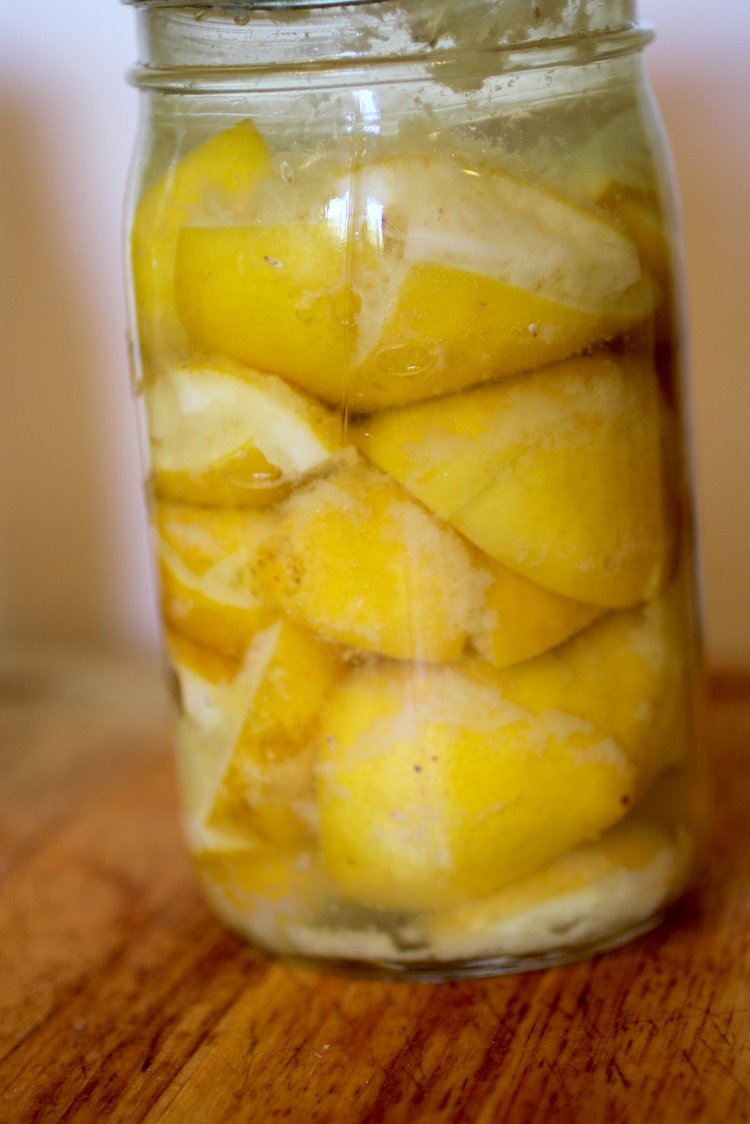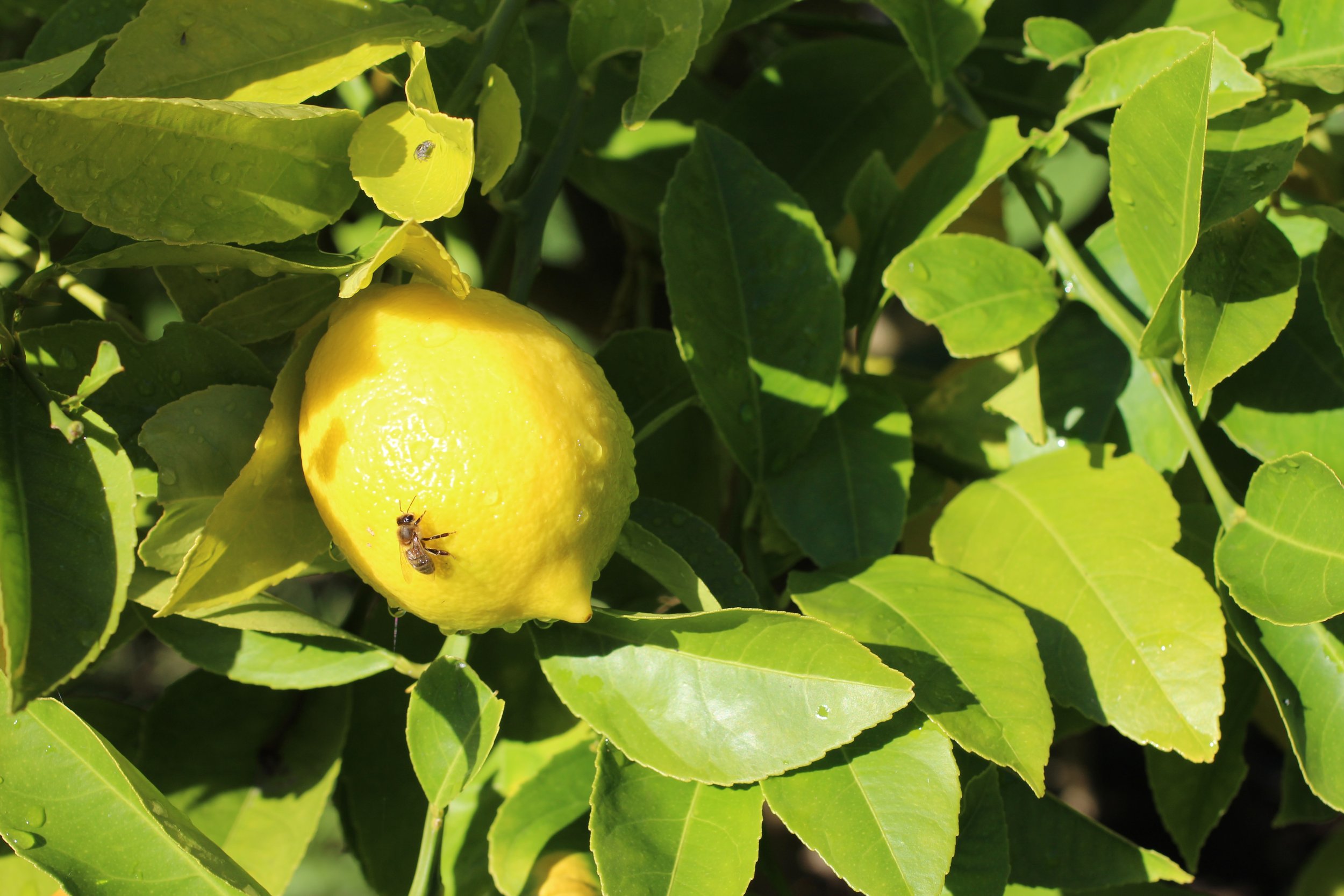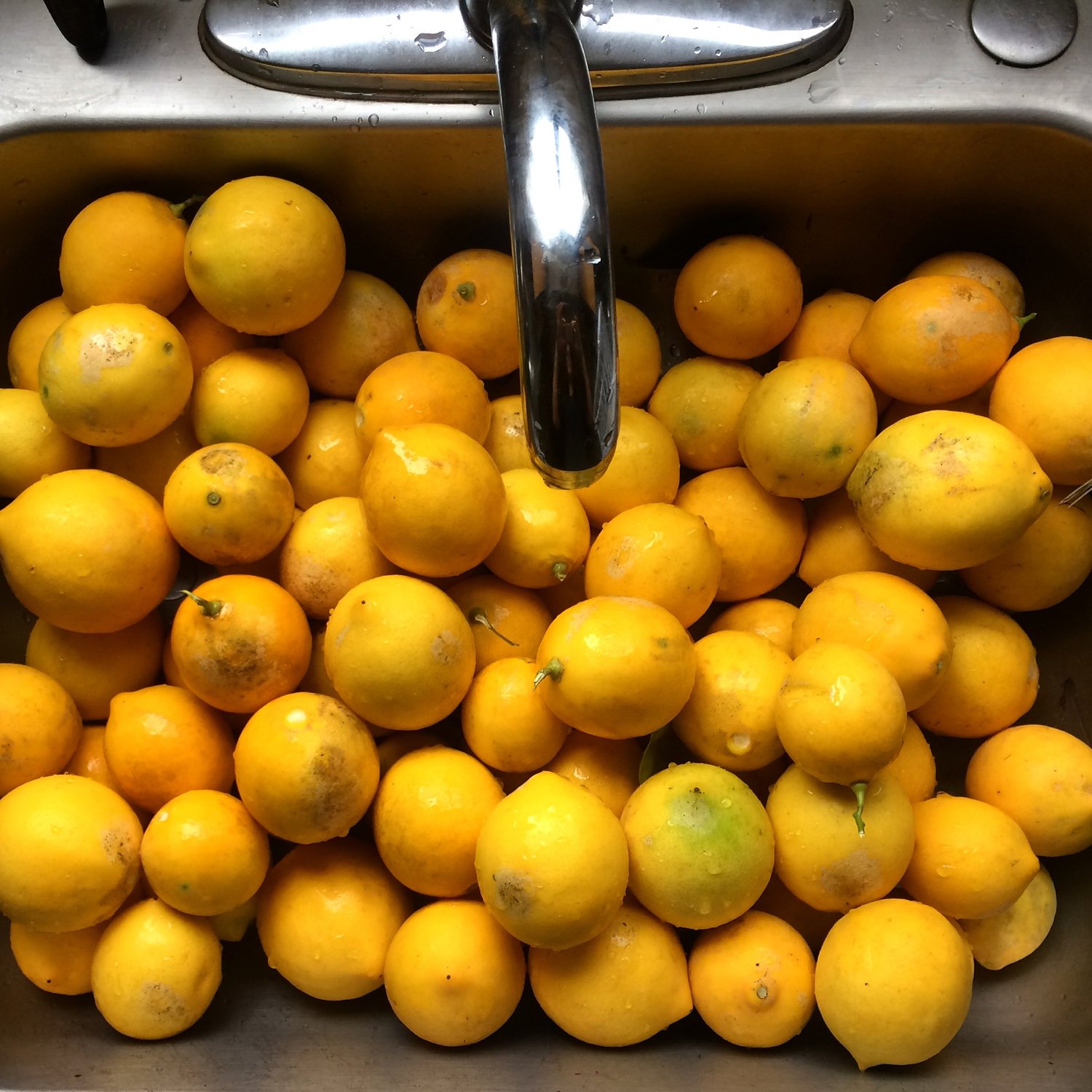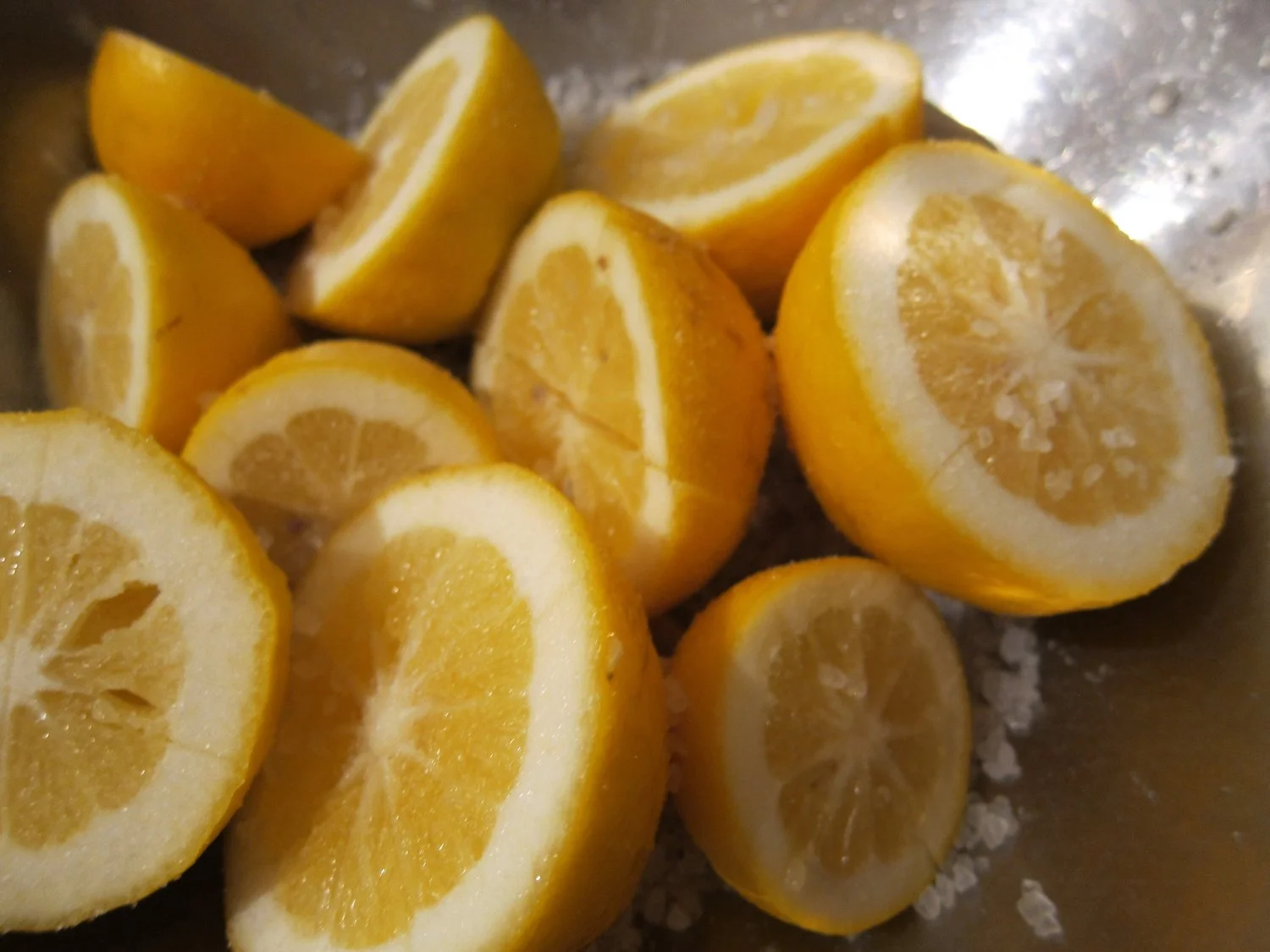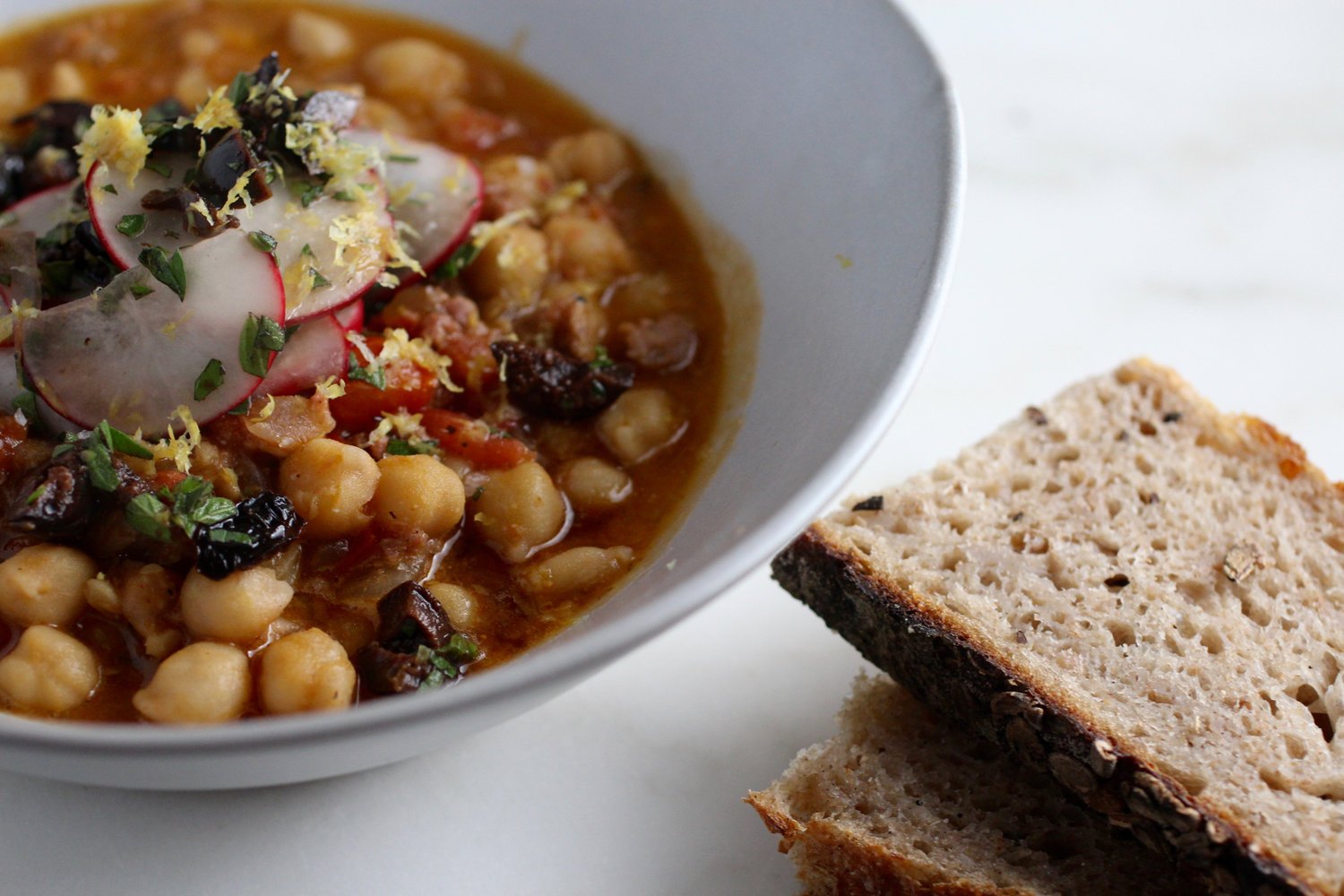Preserved Lemons
You know what they say - when life hands you lemons...preserve them! I don't remember the first time I made preserved lemons and discovered how incredibly easy it is, but I do know that I've been making them pretty much at least once a year ever since. By rubbing generously with salt and pressing under the saline brine created, fresh whole lemons are transformed over time into the best kind of funky, fermented condiment. The very acidic, salty, and oxygen-free (because you submerge them under water) environment keeps the bad microbes out while the good microbes take over to create a more delicate texture and heighten deliciousness.
Complex flavor from a simple, salty ferment.
Preserved lemons are common to Moroccan/Mediterranean/Middle Eastern cuisine, but the possibilities don't stop there. I like to chop them up and use them on all kinds of foods such as sautéed greens, grain pilafs (think couscous with cinnamon and toasted almonds/pine nuts), roasted winter squash, chickpeas or other beans, grilled fish, and slow-cooked meats or soups (think chicken with olives and saffron). Really, the possibilities are endless and delicious - adding preserved lemon is the easiest of ways to impress your friends when you serve them a meal ("what's that delightfully savory-sour flavor, you ask? Why, my own preserved Moroccan lemons of course!") I was fortunate enough recently to come across a laundry basket's worth (literally) of lemons from my parents and couldn't think of a better way to harness the power of a garden lemon for a later date.
Hello bee!
When life hands you lemons…(from your parents’ tree)
A bunch of lemons (example: 10 lemons)
A bunch of coarse sea salt (example: 1/2 cup salt)
Additional lemon juice and salt as needed
Other ingredients if desired such as bay leaf, peppercorn, coriander, clove (I never use additional ingredients, as I like the lemon flavor to shine on its own)
Wash mason jars (a one-pint jar will hold 3-4 lemons) with hot soapy water and wash lemons well with water, scrubbing off any dirt. For 10 lemons, you will about 4 one-pint jars or about 2 quart jars.
Cut lemons in half then quarter each half without cutting all of the way through so there are 4 attached segments on each half.
Rub lemon halves all over with salt, making sure to get in between the crevices, and press down into jars as you go. Press lemon halves on top of each other into jars tightly, squeezing out as much water as possible.
The lemons in each jar should be submerged in their own salty lemon juice. If they aren't submerged, add more lemon juice and press down again. You may need to wait a few hours and press down another time (making sure to wash your hands any time you come into contact with the lemons), as they absorb liquid and are easier to press down over time. I like to also put something (that has been well-cleaned) on top of the lemons so that they stay submerged. A smaller jar (such as a 4-ounce jar) filled with water works well for this. I have also used plastic bags filled with water for this purpose.
Leave on the counter for about 3 weeks then screw on lid and store in the refrigerator for up to one year (even 2 years in some circles, but they probably won't last that long!)* To use, remove rind, rinse, chop, and add at the end of cooking. Juice (and even chopped pulp) can be used as well - it's not as common, but has a similar flavor!
Lemons halved and quartered so segments remain attached before salting.
Chickpea soup with preserved lemon juice, tomato, olives, and lemon zest.

